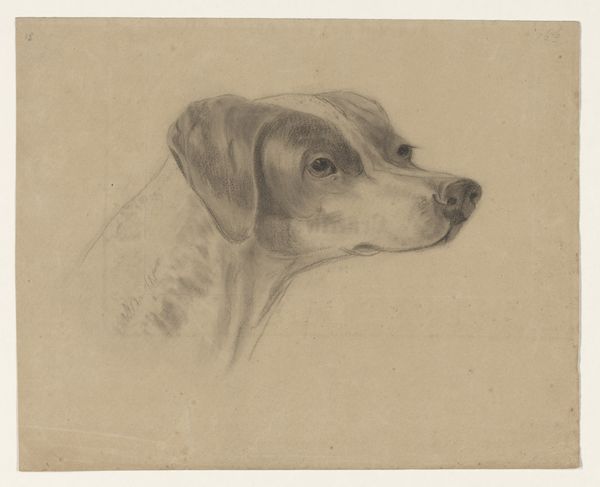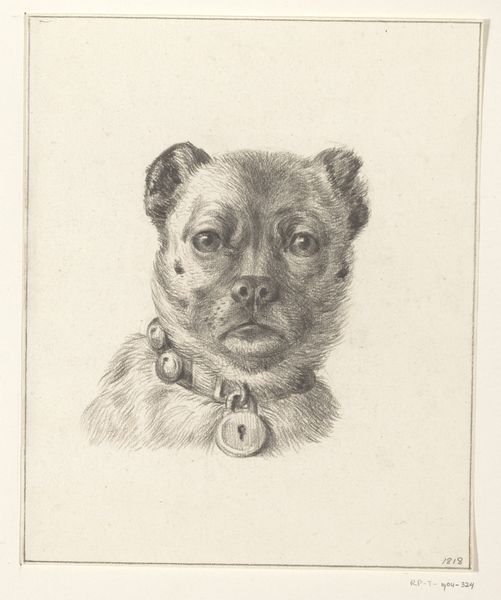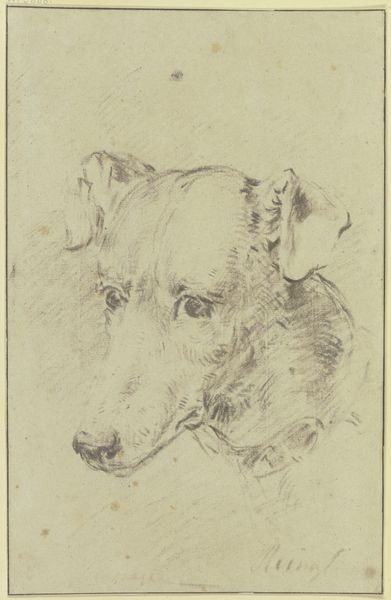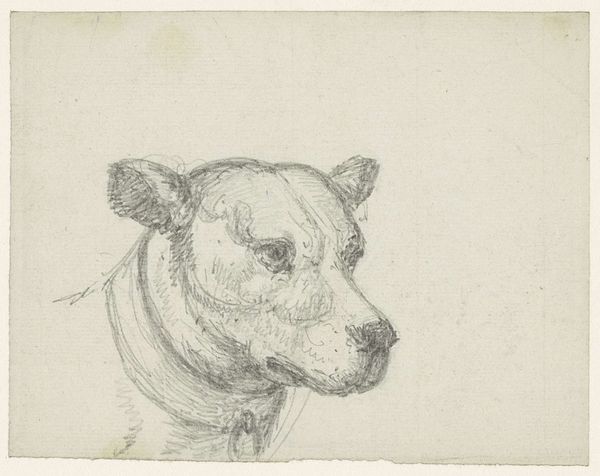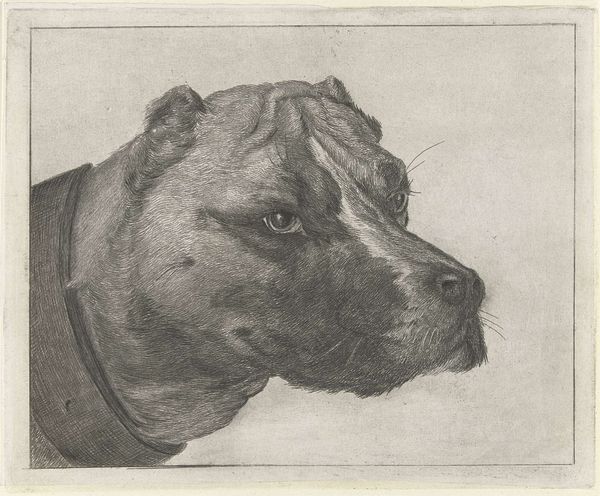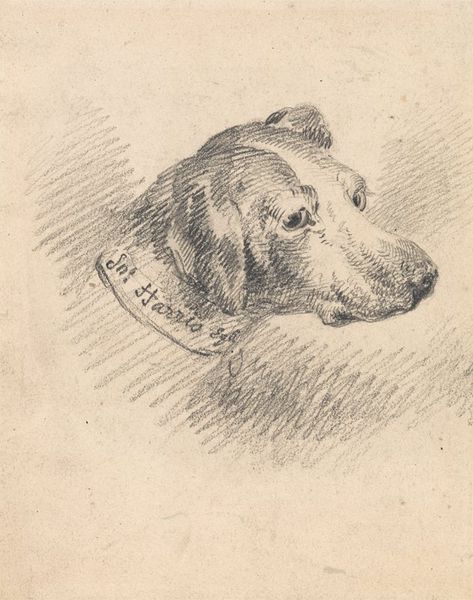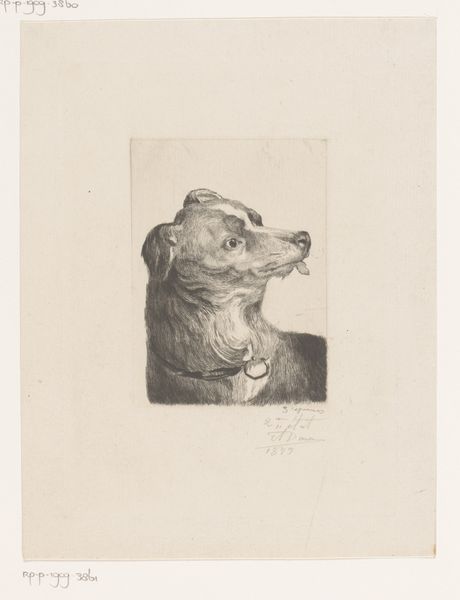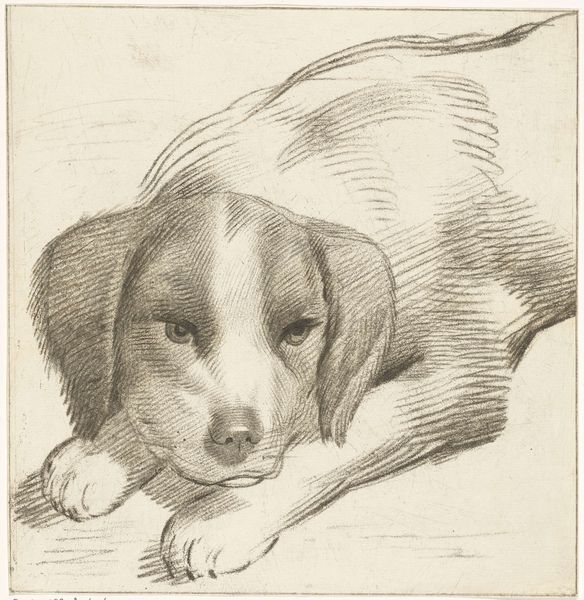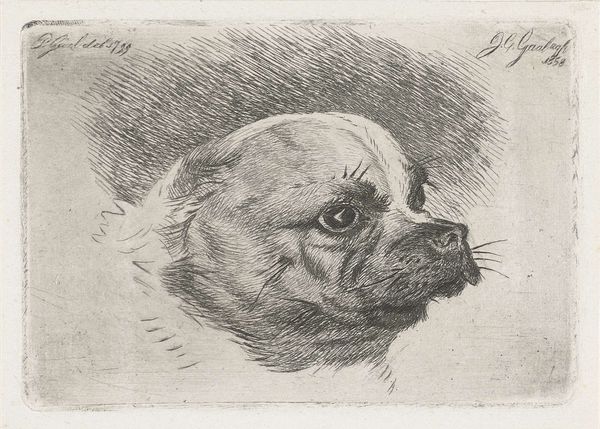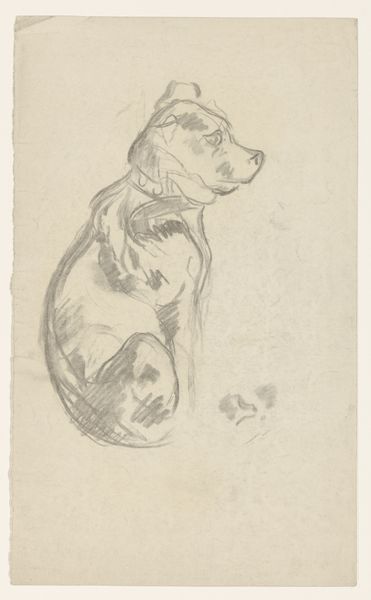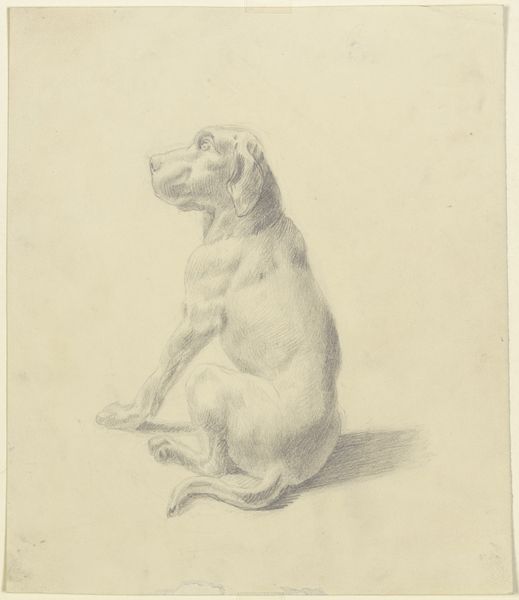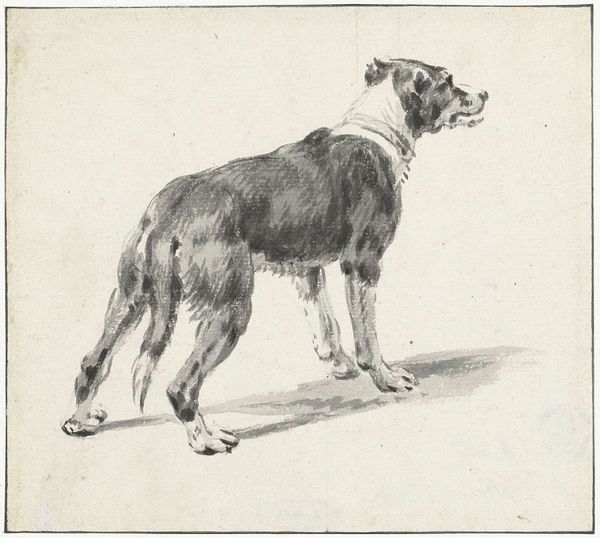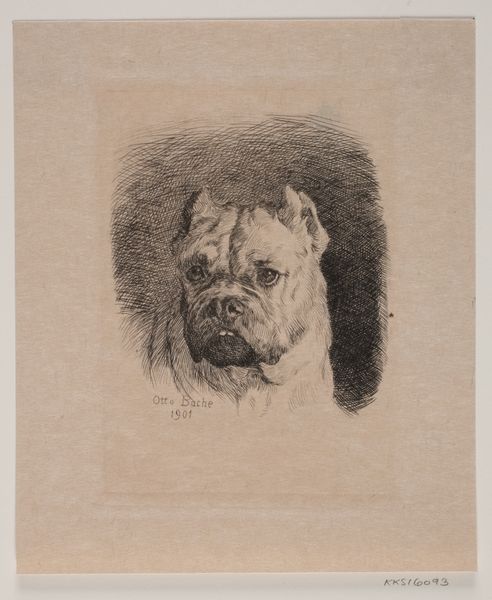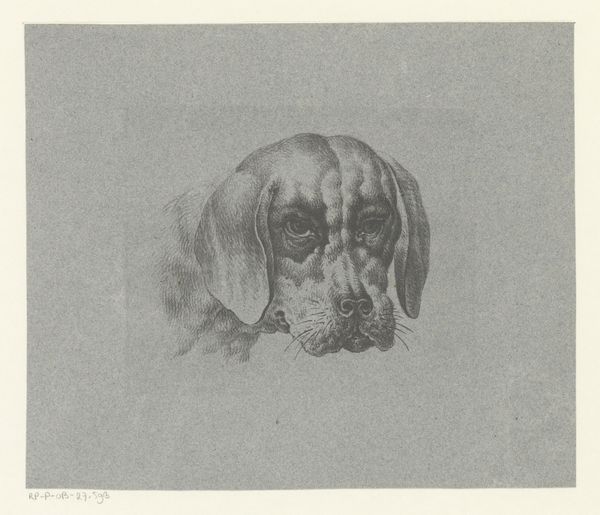
drawing, pencil
#
portrait
#
pencil drawn
#
drawing
#
amateur sketch
#
light pencil work
#
pencil sketch
#
charcoal drawing
#
personal sketchbook
#
pencil drawing
#
detailed observational sketch
#
pencil
#
portrait drawing
#
pencil work
#
realism
Dimensions: overall: 21.9 x 18.1 cm (8 5/8 x 7 1/8 in.)
Copyright: National Gallery of Art: CC0 1.0
Editor: Here we have "A Boxer," a pencil drawing from around 1795 by Johann Heinrich Wilhelm Tischbein. I’m struck by its immediacy, like a quick sketch from a personal sketchbook. What stands out to you about this work? Curator: For me, the fascination lies in the raw materiality of the pencil and paper. The artist's labor is evident in the varied pencil strokes, the build-up of graphite creating form. Consider the accessibility of these materials around 1795, reflecting a specific mode of artistic production available at the time. Do you think that accessibility influenced the rise of sketching and amateur art practices? Editor: That's an interesting angle. It makes me think about who had access to art supplies, and how that might have shaped artistic output. But why focus so much on the materials? Doesn’t the subject matter—the dog itself—matter? Curator: The subject definitely matters, but it exists within a material reality. Think about the paper—its production, trade routes, and affordability. Even the specific type of pencil used reveals aspects of technological advancement and access to resources in that era. This influences not just *what* is depicted, but *how*. The rapid nature of sketch relates to capitalist efficiency in that a greater volume of lower investment studies could yield breakthroughs, a pattern still relevant to technological artistic media. Editor: I hadn't considered it that way. So by examining the materials, we can learn about the broader social and economic conditions in which the artwork was made. Curator: Precisely! By looking at the material conditions, the production process, and the intended consumption, we start to understand the deeper narratives embedded in this seemingly simple drawing. Editor: It’s amazing how much history can be unpacked from a humble pencil sketch! This material perspective has really opened my eyes. Curator: Indeed! Considering art through the lens of production reveals art's function as an index of material history.
Comments
No comments
Be the first to comment and join the conversation on the ultimate creative platform.
